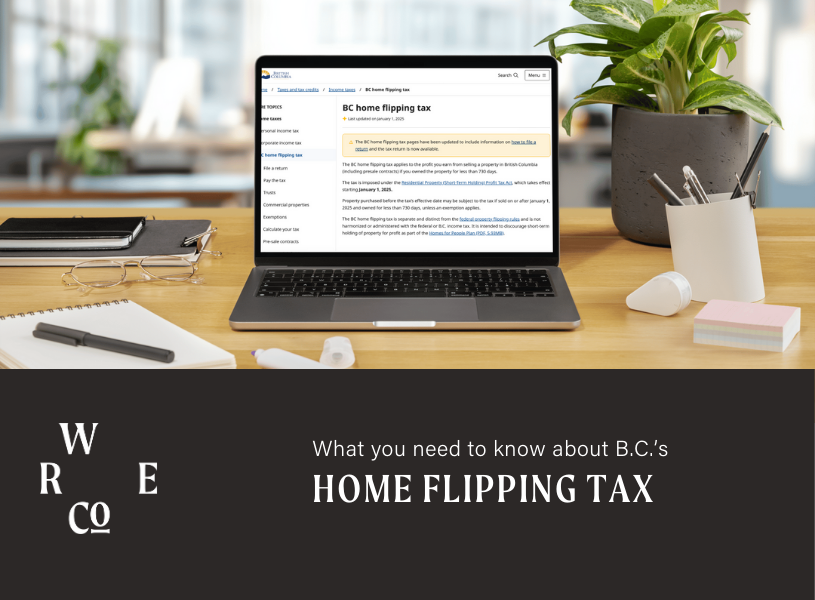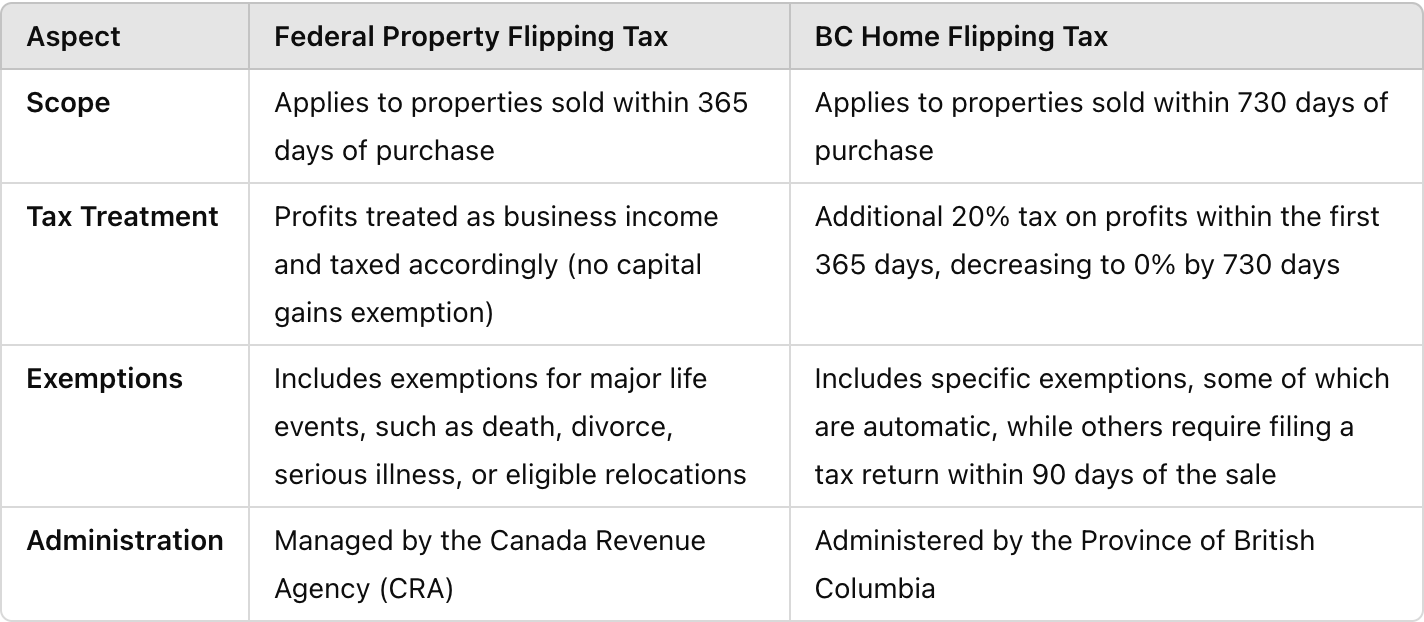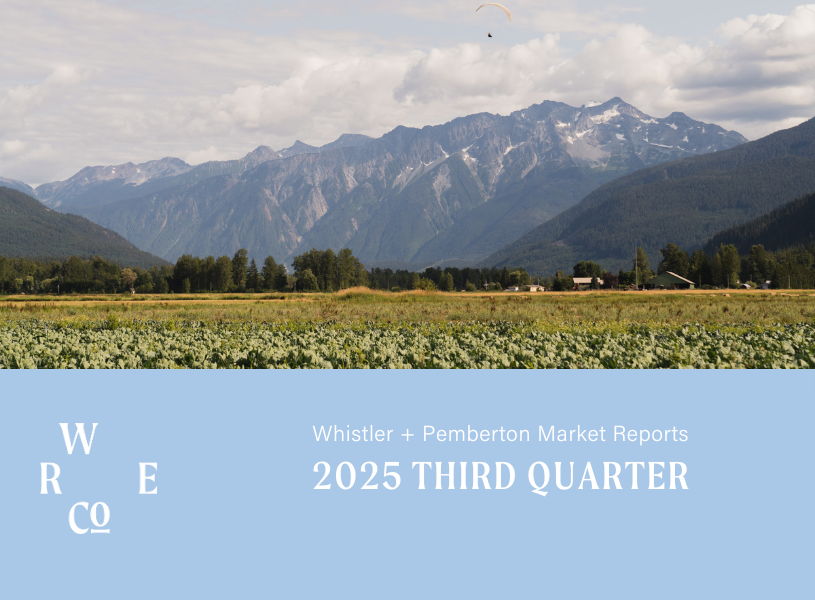New B.C. Home Flipping Tax: What You Need to Know

As of January 1, 2025, the BC Home Flipping Tax has come into effect. At a high level, it is a tax on the profits earned from the sale of a property that only applies if the property was owned for less than 730 days. Its primary purpose is to discourage speculative flipping by limiting quick resales that drive up housing prices. Additionally, it aims to increase the housing supply by ensuring homes are available for long-term residents. By targeting these practices, the tax seeks to enhance affordability, slow the escalation of housing prices, and help stabilize the real estate market. Below is a summary based on our understanding of the tax. For complete details please visit the BC government BC flipping tax home page.
Scope and Application
Who is affected?
- Individuals or entities selling residential properties in BC, regardless of residency.
- It applies to both freehold properties and pre-sale assignments (selling the contract for a yet-to-be-built property).
- Sales occurring on or after January 1, 2025, are subject to the tax, even if the property was purchased before this date.
Ownership Duration Requirement
- The tax applies if the property was owned for less than 730 days (2 years).
- The rate of tax decreases as the duration of ownership increases:
- 1–365 days: Maximum tax of 20% on the proceeds of the sale
- 366–729 days: The tax rate applied to the profit decreases linearly until it reaches 0% after 2 years.
Exemptions
The tax does include exemptions to accommodate situations where a sale is necessary due to life circumstances. Some exemptions include:
Personal Circumstances:
- Death: Sale of the deceased’s property.
- Divorce or Separation: Sale due to breakdown of a marriage/common-law relationship.
- Illness or Disability: Sale caused by health or mobility issues requiring a move.
- Relocation for Work: Sale required due to job relocation over a certain distance.
- Change in Household Composition: Birth of a child, caregiving responsibilities, etc.
- Involuntary Job Loss: Loss of employment leading to financial hardship.
- Personal Safety Concerns: Victims of domestic violence or other threats.
External Factors:
- Insolvency: Bankruptcy or inability to meet financial obligations.
- Property Destruction: Property damaged or destroyed due to natural disasters or accidents.
- Expropriation: When the government or a public body acquires the property.
Developer/Builder Exemptions:
- Builders or developers may qualify for exemptions, provided they meet specific criteria.
Depending on the exemption, the seller is either exempt only after filing a return, or exempt without filing a return. For more comprehensive information on the various types of exemptions and the procedures to follow, we encourage you to visit the official BC Government website where you will find detailed explanations and helpful resources to guide you.
Calculating the Tax
The BC Home Flipping Tax is calculated based on the profit earned from the sale of the property. Here are the steps to follow:
- Determine Taxable Income: Sale Price – (Purchase Price + Documented Improvements + Eligible Sale Costs)
- Primary Residence Deduction: If the property was your primary residence for at least 1 year, you can deduct up to $20,000 from the taxable income.
- Apply Tax Rate: For properties owned less than 365 days, the full 20% tax applies. For properties owned 366–729 days, a proportional reduction applies.
Please note, this provincial tax is distinct from the existing Federal Property Flipping Tax and specifically targets short-term property sales. Refer to the chart below for a clear comparison between the two.

For more information on how this tax might impact your property or future real estate transactions, we encourage you to reach out to your local Whistler Real Estate Company agent and personal accountant. Their expertise and personalized guidance can help you navigate these changes and make informed decisions tailored to your needs.
*Note that the information in this blog is current as of January 13, 2025. To ensure you have the most up to date information, please refer to the BC government BC flipping tax home page.


